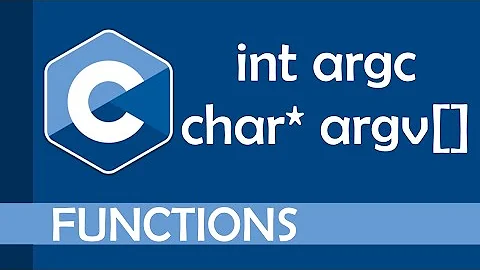How to check if there are no parameters provided to a command?
Solution 1
To check if there were no arguments provided to the command, check value of $# variable then,
if [ $# -eq 0 ]; then
echo "No arguments provided"
exit 1
fi
If you want to use $*(not preferable) then,
if [ "$*" == "" ]; then
echo "No arguments provided"
exit 1
fi
Some explanation:
The second approach is not preferable because in positional parameter expansion * expands to the positional parameters, starting from one. When the expansion occurs within double quotes, it expands to a single word with the value of each parameter separated by the first character of the IFS special variable. That means a string is constructed. So there is extra overhead.
On the other hand # expands to the number of positional parameters.
Example:
$ command param1 param2
Here,
Value of $# is 2 and value of $* is string "param1 param2" (without quotes), if IFS is unset. Because if IFS is unset, the parameters are separated by spaces
For more details man bash and read topic named Special Parameters
Solution 2
If you're only interested in bailing if a particular argument is missing, Parameter Substitution is great:
#!/bin/bash
# usage-message.sh
: ${1?"Usage: $0 ARGUMENT"}
# Script exits here if command-line parameter absent,
#+ with following error message.
# usage-message.sh: 1: Usage: usage-message.sh ARGUMENT
Related videos on Youtube
well actually
Updated on September 18, 2022Comments
-
well actually almost 2 years
How do you check if
$*is empty? In other words, how to check if there were no arguments provided to a command? -
nicerobot over 12 yearsOr
if ! (($#)); ..., orif (($# == 0)); ..., orif [ $# -eq 0 ]; ..., or! (($#)) && ..., or(($#)) || ... -
 Gilles 'SO- stop being evil' over 12 years
Gilles 'SO- stop being evil' over 12 years[ $# -eq 0 ]is the most common form IME. There are edge case where"$#"can be empty: if there's a single argument which is empty, or if there are several empty arguments and$IFSis empty. -
manatwork over 12 yearsThe
"$*"expression will also evaluate to""if only one""parameter was passed. But most of the time you will probably not care about anyway. -
well actually over 12 yearsI believe it should be = instead of == ... currently I'm getting an unexpected operator error, and changing to = fixes the problem.
-
disco.dan.silver over 12 years@Charlotte That means you are not using
bash. You are usingshto execute the script. AFAIK==is valid only inbash. -
well actually over 12 yearsah, okay. good to know.
-
 Jürgen Paul over 9 yearswhat does
Jürgen Paul over 9 yearswhat does$#even mean? -
 MichaelChirico about 8 years@Michelle "# expands to the number of positional parameters." as stated in answer...
MichaelChirico about 8 years@Michelle "# expands to the number of positional parameters." as stated in answer... -
 MichaelChirico about 8 yearsIf you'll indulge me, what is the inverse of this operation?
MichaelChirico about 8 yearsIf you'll indulge me, what is the inverse of this operation?-neqdidn't work and I'm not doing anything if arguments are missing, so no sense creating that branch unnecessarily. -
 Jeff Schaller over 7 yearsThat seems to be a convoluted way of doing what the accepted answer wrote 5 years ago....
Jeff Schaller over 7 yearsThat seems to be a convoluted way of doing what the accepted answer wrote 5 years ago.... -
Stephane Rolland about 3 yearswhat is the name of this technique using the
?in the bracket expansion${}? I cannot wrap myn head around the meaning and behaviour of it. I suppose?applies to th1in$1; but I'm left clueless, I'd gladly dig deeper this technique/syntax. -
 jgreve almost 3 yearsaka parameter expansion: gnu.org/software/bash/manual/html_node/…
jgreve almost 3 yearsaka parameter expansion: gnu.org/software/bash/manual/html_node/…




